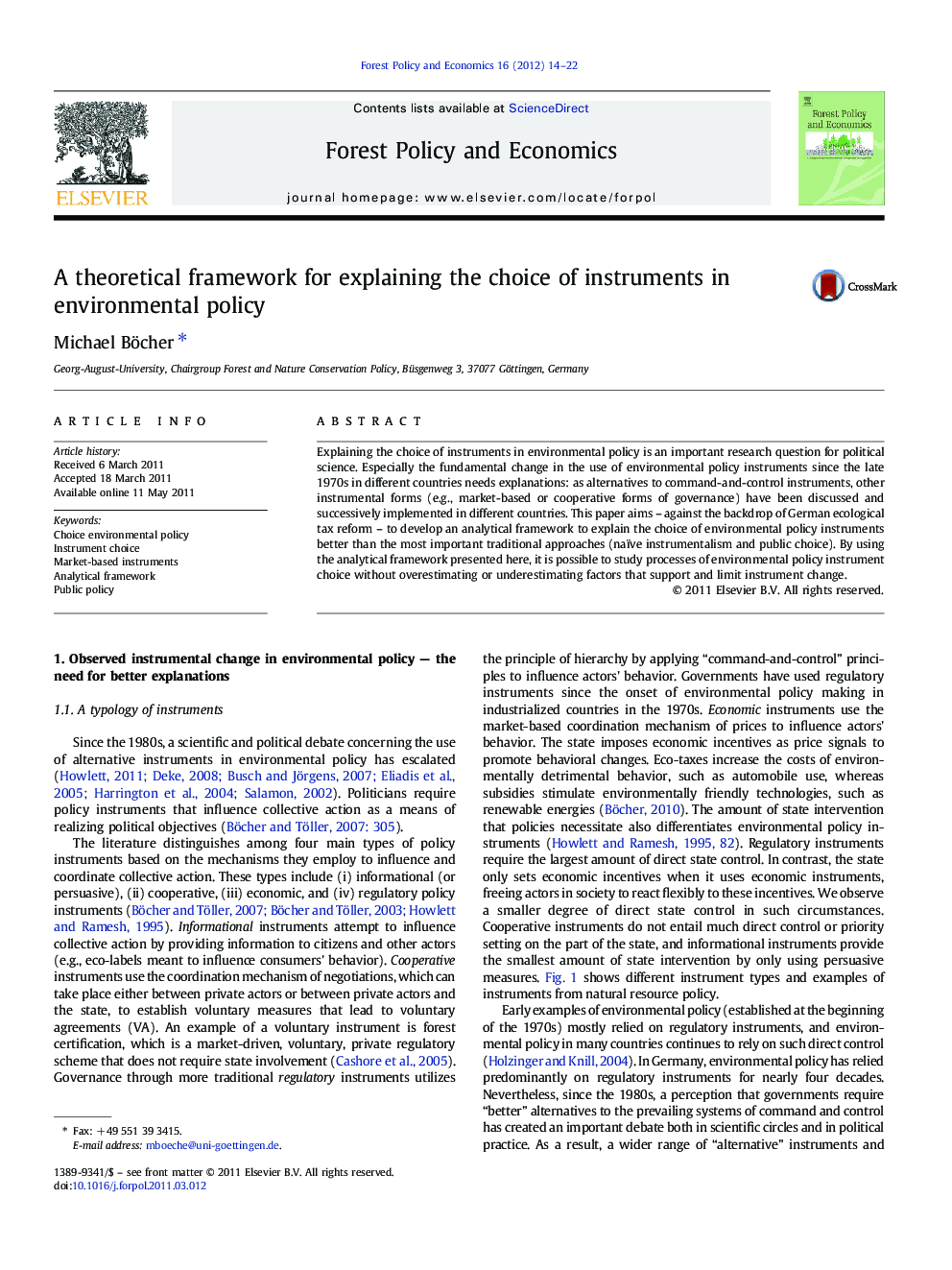| Article ID | Journal | Published Year | Pages | File Type |
|---|---|---|---|---|
| 91155 | Forest Policy and Economics | 2012 | 9 Pages |
Explaining the choice of instruments in environmental policy is an important research question for political science. Especially the fundamental change in the use of environmental policy instruments since the late 1970s in different countries needs explanations: as alternatives to command-and-control instruments, other instrumental forms (e.g., market-based or cooperative forms of governance) have been discussed and successively implemented in different countries. This paper aims – against the backdrop of German ecological tax reform – to develop an analytical framework to explain the choice of environmental policy instruments better than the most important traditional approaches (naïve instrumentalism and public choice). By using the analytical framework presented here, it is possible to study processes of environmental policy instrument choice without overestimating or underestimating factors that support and limit instrument change.
Research Highlights► Explaining the choice of instruments in environmental policy is an important research question for political science. ► This paper develops an analytical framework to explain the choice of environmental policy instruments better than the most important traditional approaches. ► By using the analytical framework presented, it is possible to study processes of environmental policy instrument choice without overestimating or underestimating factors that support respectively limit instrument change. ► The analytical potentials of this framework are demonstrated against the background of Germen ecological tax reform policy.
